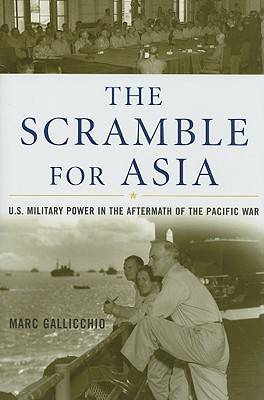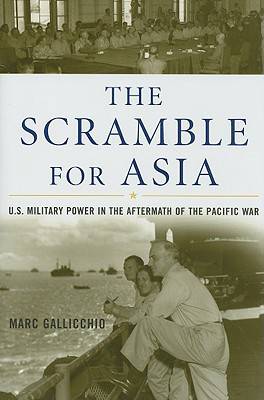
- Retrait gratuit dans votre magasin Club
- 7.000.000 titres dans notre catalogue
- Payer en toute sécurité
- Toujours un magasin près de chez vous
- Retrait gratuit dans votre magasin Club
- 7.000.0000 titres dans notre catalogue
- Payer en toute sécurité
- Toujours un magasin près de chez vous
54,45 €
+ 108 points
Format
Description
As American generals and diplomats accepted Japan's surrender on the deck of the U.S.S. Missouri in September 1945, allied combatants wrestled for power in the new post-war world. The decisions made to effect Japan's surrender entangled U.S. forces on the mainland of Asia for the next two years, and helped shape the next several decades of international relations in the Far East. Marc Gallicchio expertly examines the diplomatic, military, and economic struggles in which the United States, China, and the Soviet Union were pitted in the immediate aftermath of victory over Japan. The Allied victory was but a prelude to an American search for a lasting peace across Asia, stretching from Korea to Vietnam and out to the Pacific atolls. In seeking to shape events on the mainland, the administration of Harry S. Truman confronted the anomalous nature of American power. The military operations undertaken by the United States in the early days of post-war peace affected developments in Asia in unexpected ways. As Gallicchio makes clear, Americans would soon find that the scramble for Asia from 1945 to 1947 had set the stage for future conflict in the region.
Spécifications
Parties prenantes
- Auteur(s) :
- Editeur:
Contenu
- Nombre de pages :
- 224
- Langue:
- Anglais
- Collection :
Caractéristiques
- EAN:
- 9780742544376
- Date de parution :
- 09-10-08
- Format:
- Livre relié
- Format numérique:
- Genaaid
- Dimensions :
- 157 mm x 231 mm
- Poids :
- 476 g

Les avis
Nous publions uniquement les avis qui respectent les conditions requises. Consultez nos conditions pour les avis.






